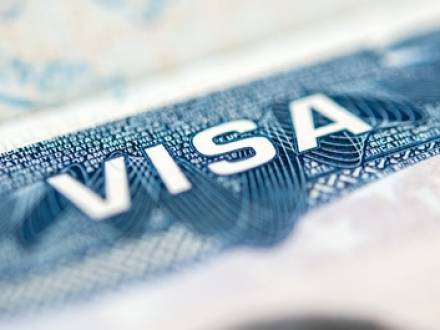Recent Blog Posts
What's the Latest News for DACA Recipients?
 If you are a DACA recipient in 2026, you probably have questions about your future in the United States. The Deferred Action for Childhood Arrivals program has faced many changes recently. Understanding these changes is important for protecting yourself and your family.
If you are a DACA recipient in 2026, you probably have questions about your future in the United States. The Deferred Action for Childhood Arrivals program has faced many changes recently. Understanding these changes is important for protecting yourself and your family.
According to the U.S. Citizenship and Immigration Services, there are about 525,000 active DACA recipients in the United States. This number has gone down recently, likely due to intensive immigration enforcement efforts from the Trump Administration. Many people are worried about what this means for their status.
If you have questions about your DACA status or need help with your renewal, our Herndon immigration lawyers can help you understand your options. Hablamos español.
Financial Requirements and Considerations for Spousal Visas
 When someone applies for a spouse or marriage visa, there are many requirements that must be met. Some of these include very important financial requirements.
When someone applies for a spouse or marriage visa, there are many requirements that must be met. Some of these include very important financial requirements.
Immigration law can change quickly, especially under the Trump Administration in 2026. If you hope to apply for a spouse visa for yourself or your partner, talk to a Fairfax County immigration attorney now. Hablamos español.
What Is a CR-1 Spousal Visa?
A CR-1 spousal visa is a green card that allows a person from another country to live in the United States with his or her spouse, who is a U.S. citizen or permanent resident. The letters CR stand for conditional resident. This visa is for couples who have been married for less than two years at the time the foreign spouse enters the United States.
Two years after arriving in the U.S., the person with the CR-1 visa and his or her spouse must apply to remove the conditions from the green card. This is done by filing Form I-751, Petition to Remove Conditions on Residence. Once USCIS approves the petition, the conditional status is removed. The person now has a 10-year permanent resident card.
Will I Lose My Green Card If I Divorce My U.S. Citizen Spouse?
 Sometimes people enter the United States as the fiancé of a U.S. citizen to get married and live in the United States. If so, they might be granted a conditional green card. This can be given to those who have been married less than two years from the date the green card was issued.
Sometimes people enter the United States as the fiancé of a U.S. citizen to get married and live in the United States. If so, they might be granted a conditional green card. This can be given to those who have been married less than two years from the date the green card was issued.
Once two years have passed, the conditional green card holder can apply with their spouse to have the conditions removed. But what if the green card holder is no longer married when this time comes? Can they renew their green card and stay in the United States?
If you are asking yourself these questions in 2026, you should talk to our Virginia immigration attorney. We take cases from all over the country and are committed to helping immigrants succeed.
What Happens If You Have a Permanent Green Card and Get Divorced?
If you have a permanent green card and you divorce, your divorce generally will not affect your ability to renew your green card. You can remain in the United States, barring any circumstances that would warrant removal. When it comes time to renew, you simply file Form I-90 with U.S. Citizenship and Immigration Services.
Which Countries Aren’t Allowed to Visit the U.S. in 2026?
 On December 16, the Trump Administration expanded the list of countries that have full or partial travel bans from visiting the U.S. Now there are 39 nations on that list, according to the American Immigration Council.
On December 16, the Trump Administration expanded the list of countries that have full or partial travel bans from visiting the U.S. Now there are 39 nations on that list, according to the American Immigration Council.
Families of American citizens and residents are stuck in limbo, not knowing when they will see each other again. Those who hoped to visit the U.S. for the 2026 World Cup, or to go to an American university, now have greatly reduced odds of making those dreams come true.
If you or a family member has been impacted by the Trump Administration’s travel ban, you should talk to a national immigration attorney. You may have more options than you realize for family-based immigration.
After an Asylum Denial in Virginia: Your Next Options
 It can feel devastating to be denied asylum, but in Virginia (which happens to be one of the busiest jurisdictions in the Mid-Atlantic), a denial is not the end of the road. Regardless of whether an Arlington Immigration Court judge rejected your asylum claim or USCIS issued the denial, you have powerful legal options, including appeals, motions, or alternate protections that can potentially keep you in the country while your case continues.
It can feel devastating to be denied asylum, but in Virginia (which happens to be one of the busiest jurisdictions in the Mid-Atlantic), a denial is not the end of the road. Regardless of whether an Arlington Immigration Court judge rejected your asylum claim or USCIS issued the denial, you have powerful legal options, including appeals, motions, or alternate protections that can potentially keep you in the country while your case continues.
In other words, while an asylum denial is certainly a setback, many applicants go on to find alternate routes to remaining in the United States. What matters most after an asylum denial is understanding your options and acting quickly and proactively before critical deadlines pass. Obtaining assistance from an experienced Fairfax County, VA family immigration attorney can help you determine which path forward fits your specific situation and can make the difference between removal and protection.
How Virginia Custody Orders Can Affect I-130 Family Petitions
 Virginia families can be surprised and dismayed to learn that a state custody order issued by a Juvenile and Domestic Relations Court can directly affect a federal immigration petition, such as an I-130 Petition for Alien Relative. Custody, visitation, and parental rights are state matters, and immigration issues are federal, but USCIS can use these state orders to verify family relationships, determine who qualifies as a "child," and evaluate the stability of a household.
Virginia families can be surprised and dismayed to learn that a state custody order issued by a Juvenile and Domestic Relations Court can directly affect a federal immigration petition, such as an I-130 Petition for Alien Relative. Custody, visitation, and parental rights are state matters, and immigration issues are federal, but USCIS can use these state orders to verify family relationships, determine who qualifies as a "child," and evaluate the stability of a household.
When state court orders are unclear, conflicting, or incomplete, I-130 petitions can be delayed, denied, or sent for Requests for Evidence (RFEs). A poorly-written or outdated custody order can delay an I-130 for months, even leading to a denial. If you have an I-130 petition in the works, you must understand how state custody orders can intersect with federal immigration issues. A national immigration attorney from Immigration Legal Advisors, PLLC can help ensure your custody orders do not derail your I-130 family petition.
What Happens if You Miss Your Immigration Hearing in Virginia?
 Missing an important immigration court date in Virginia can trigger immediate – and severe – consequences. Regardless of the reason, immigration courts treat missed court dates as a failure to appear, which can, in some cases, lead to an automatic in absentia removal order (8 U.S.C. Section 1229a(b)(5)).
Missing an important immigration court date in Virginia can trigger immediate – and severe – consequences. Regardless of the reason, immigration courts treat missed court dates as a failure to appear, which can, in some cases, lead to an automatic in absentia removal order (8 U.S.C. Section 1229a(b)(5)).
While you may assume you can simply reschedule the court date or make your explanations later, under federal immigration law, the remedy window is extremely narrow, particularly with the new administration. To understand what happens next, and what legal tools still exist if you have missed a hearing, it is crucial to speak to a Fairfax County, VA family immigration lawyer.
What Counts as a Valid Missed Appearance in Immigration Court?
There is a difference between failure to appear and an excusable absence. The court will, however, proceed on the assumption that the missed court date constitutes a failure to appear, unless there is evidence to the contrary. Acceptable reasons that the court recognizes for missing an immigration court date include a medical emergency, incorrect notice, ICE detention, or a natural disaster. The immigrant who missed the court date has the burden of proof to show "exceptional circumstances," and the court will assume that the immigrant received proper notification.
Avoid These Simple Errors to Protect Your Status in Virginia
 In states across the United States where many immigrant families are an integral part of their communities, even the most minor misstep can trigger a removal proceeding by U.S. Immigration and Customs Enforcement (ICE). From something as seemingly harmless as missing a court date, these errors can have severe immigration consequences. If you are worried about the constantly changing immigration laws and your legal status, it is helpful to consult with a Fairfax County, VA family immigration lawyer from Immigration Legal Advisors, PLLC.
In states across the United States where many immigrant families are an integral part of their communities, even the most minor misstep can trigger a removal proceeding by U.S. Immigration and Customs Enforcement (ICE). From something as seemingly harmless as missing a court date, these errors can have severe immigration consequences. If you are worried about the constantly changing immigration laws and your legal status, it is helpful to consult with a Fairfax County, VA family immigration lawyer from Immigration Legal Advisors, PLLC.
Why Even the Smallest Mistakes Now Matter for Non-Citizens
Since the end of January 2025, immigration law has dramatically expanded the types of criminal offenses that trigger mandatory detention and deportation. This includes charges – not convictions – against a non-citizen for a minor offense like shoplifting. Regarding crimes involving moral turpitude (theft, fraud, assault), even a single, minor offense can place a non-citizen at risk of removal.
New Asylum Rules: What Virginia Immigrants Need to Know
 Under the current administration, immigration laws in the United States are changing rapidly, and asylum rules are no exception. Recent changes have altered the process by which immigrants apply for, qualify for, or maintain asylum protections. Immigrants and their families in Virginia and across the nation can find that these changes can make the difference between being granted protection and facing deportation. It is important to keep up with the changes and to consult with an experienced Herndon, VA immigration lawyer.
Under the current administration, immigration laws in the United States are changing rapidly, and asylum rules are no exception. Recent changes have altered the process by which immigrants apply for, qualify for, or maintain asylum protections. Immigrants and their families in Virginia and across the nation can find that these changes can make the difference between being granted protection and facing deportation. It is important to keep up with the changes and to consult with an experienced Herndon, VA immigration lawyer.
What Is Asylum?
A person who is already in the United States or at a port of entry and meets the definition of a refugee, but applies for asylum from within the U.S., is applying for asylum. Both asylum and refugee status require a well-founded fear of persecution because of religion, nationality, race, political opinion, or membership in a specific social group.
What Happens After You Enter the U.S. on a Fiancé Visa?
 Although the K-1 fiancé visa allows engaged couples to reunite in the United States, entering the U.S. is just the beginning of a legal process that can generously be called "carefully structured." Every step of the process has crucial legal requirements and deadlines.
Although the K-1 fiancé visa allows engaged couples to reunite in the United States, entering the U.S. is just the beginning of a legal process that can generously be called "carefully structured." Every step of the process has crucial legal requirements and deadlines.
Failing to follow these guidelines and requirements could jeopardize not just your marriage plans but also your immigration status. To ensure you comply with all legal requirements, it is always a good idea to have a knowledgeable Herndon, VA immigration attorney with the experience and skills to guide you through the process in the best way possible.
What Is a K-1 Fiancé Visa?
A K-1 fiancé visa allows a foreign citizen’s fiancé to travel to the United States to marry his or her U.S. citizen sponsor. A U.S. citizen must file Form I-129F, Alien Fiancé, with the USCIS to initiate the process. Both the U.S. citizen and the foreign fiancé must be eligible to marry, and must have the intent to do so within 90 days of when the foreign citizen enters the U.S.





